
Culture China
18:26, 03-Feb-2019
'Lucky' foods: Pairing Chinese New Year wishes with traditional dishes
Updated
21:15, 03-Feb-2019
CGTN
02:59
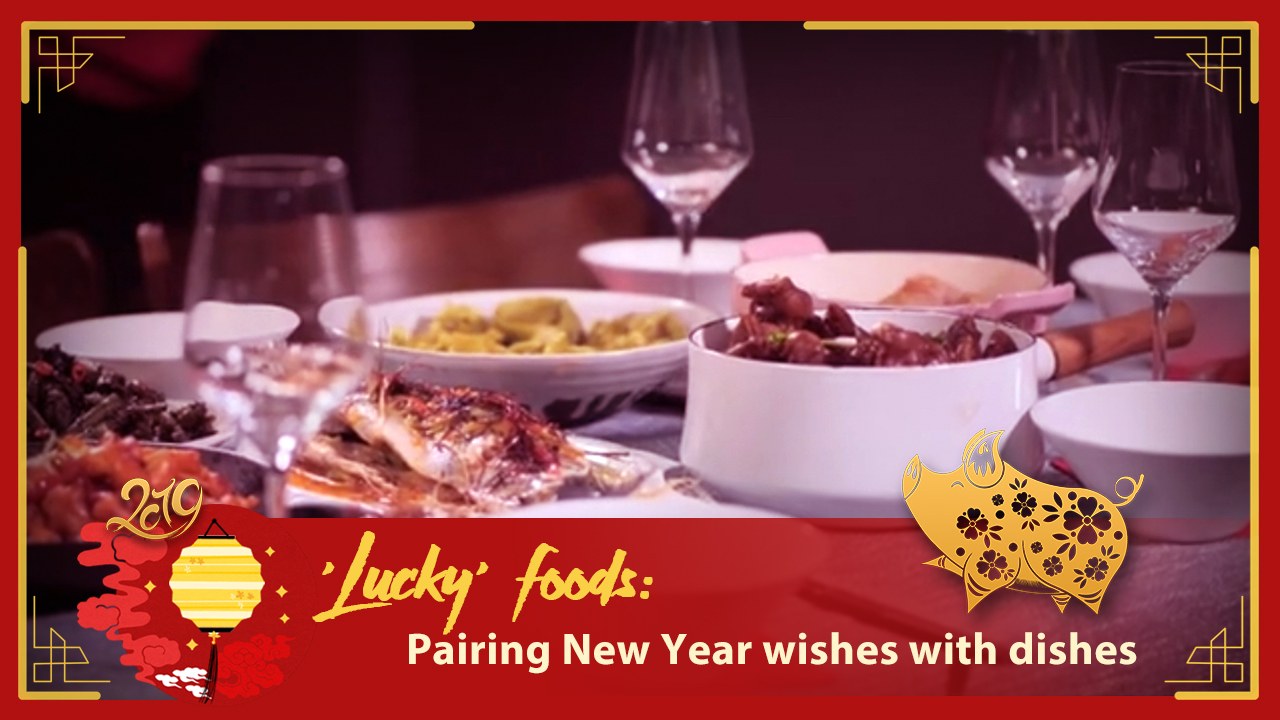
Food takes center stage during significant calendar dates in China – a society steeped in tradition and guarded by ceremonial rituals. Among cultural events, Spring Festival reigns supreme. It's a time for homecoming and thanksgiving, when families, separated by distance and life's preoccupations, reunite and reconnect.
On Monday night, when Chinese people gather with their loved ones to welcome the Year of the Pig, they'll be doing so around the dinner table – sharing good wishes and making up for lost time as glasses clink and eyes and taste buds feast on a banquet fit for emperors.
Tables will be heaped with piles of dishes as diners fill and refill their plates to their heart's content. On the menu will be a handpicked selection of traditional foods to which the Chinese culture attaches great significance.
Chinese New Year's Eve reunion dinner or Nianyefan (年夜饭) in Chinese is not your regular cup noodle night or another takeout meal eaten while watching television. The fare consists of "lucky foods" – items that deep-rooted beliefs have put in a league of their own because of what they stand for.
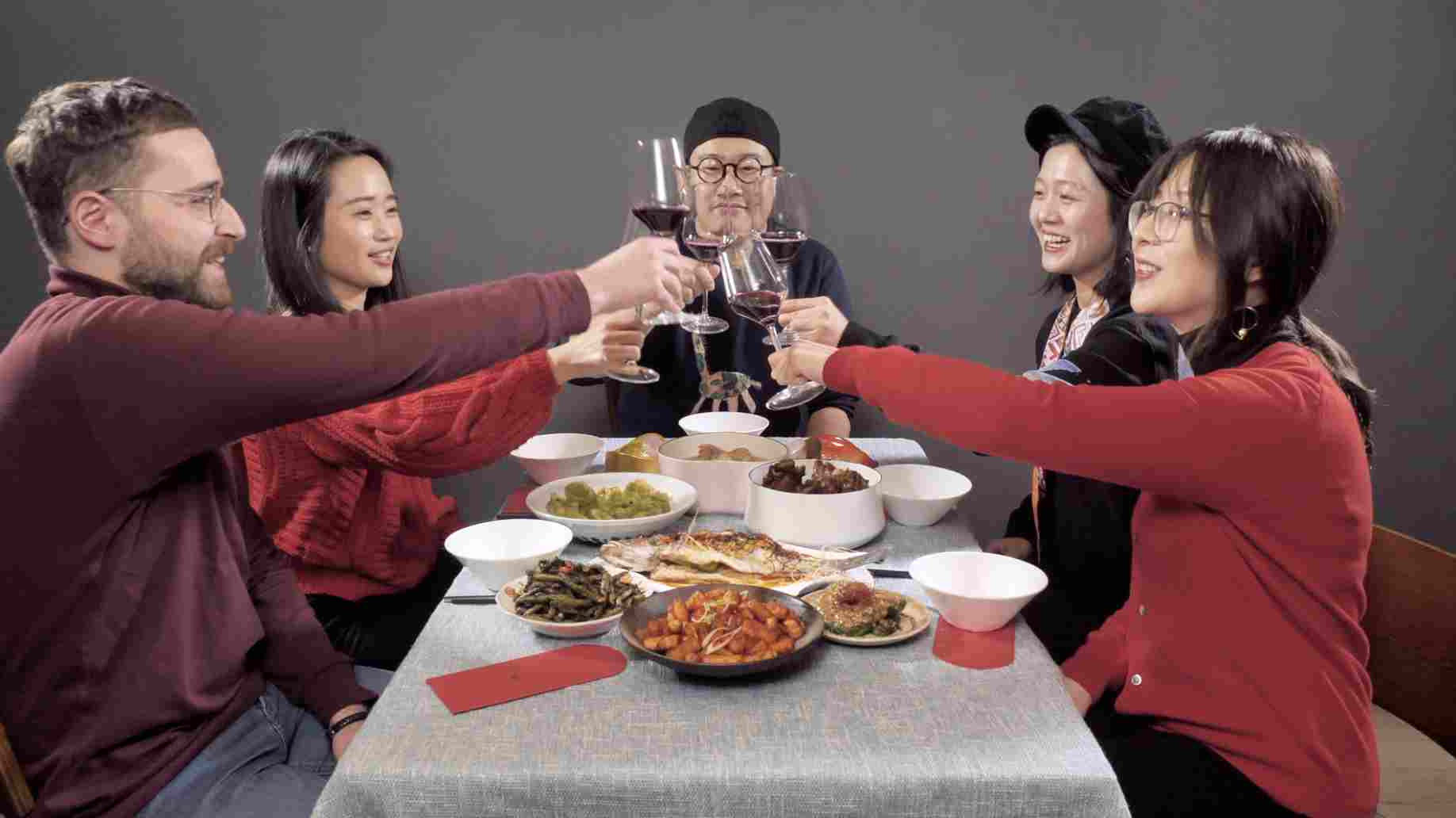
Nianyefan is all about sharing a good meal with good company. /CGTN Photo
Nianyefan is all about sharing a good meal with good company. /CGTN Photo
They are not superfoods per se, but they do have superpowers according to Chinese folklore, fulfilling not only physiological needs but also psychological ones. Common belief has it that these foods are harbingers of good fortune because of the way they look or how their names are pronounced.
Consumed just hours before the Lunar New Year rolls around, "lucky foods" are meant to attract success, keep families together and increase one's wealth. They represent longevity, symbolize prosperity and epitomize togetherness.
But what are these edible emblems of luck? The answer depends on whom in China you ask.
As different regions in the vast country take pride in their own diverse culture and cuisine, what ends up coming out of the kitchen is closely related to local tastes and cooking styles. However, some dishes have received the stamp of approval from almost every Chinese regardless of geographic lines.
Hungry and looking for luck? Here are five dishes to eat your way to your life goals.
Steamed fish
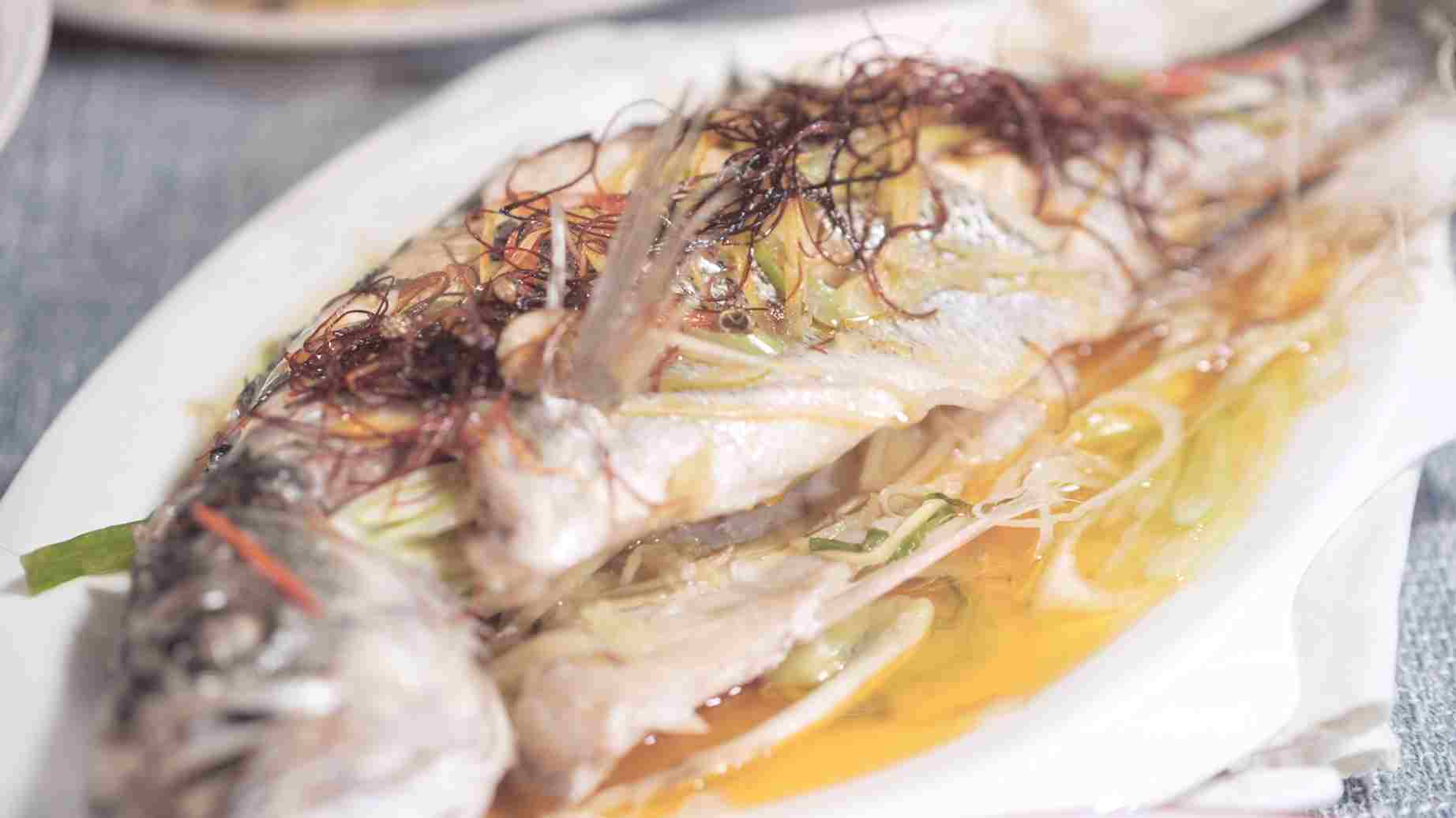
A life of plenty begins on the dinner table, with a fish dish. /CGTN Photo
A life of plenty begins on the dinner table, with a fish dish. /CGTN Photo
Simple yet hearty, steamed fish is the centerpiece of the Chinese New Year's Eve menu. In Mandarin, fish (鱼) and surplus (余) are homophones, and consuming the water dweller on Chinese New Year's Eve is believed to ensure abundance – in food and finances – in the year ahead. One oft-quoted Chinese idiom to explain the significance of fish is 年年有余, or "May every year bring surplus." In certain parts of China, people leave the head and tail untouched until the next day to symbolize completeness.
Dumplings
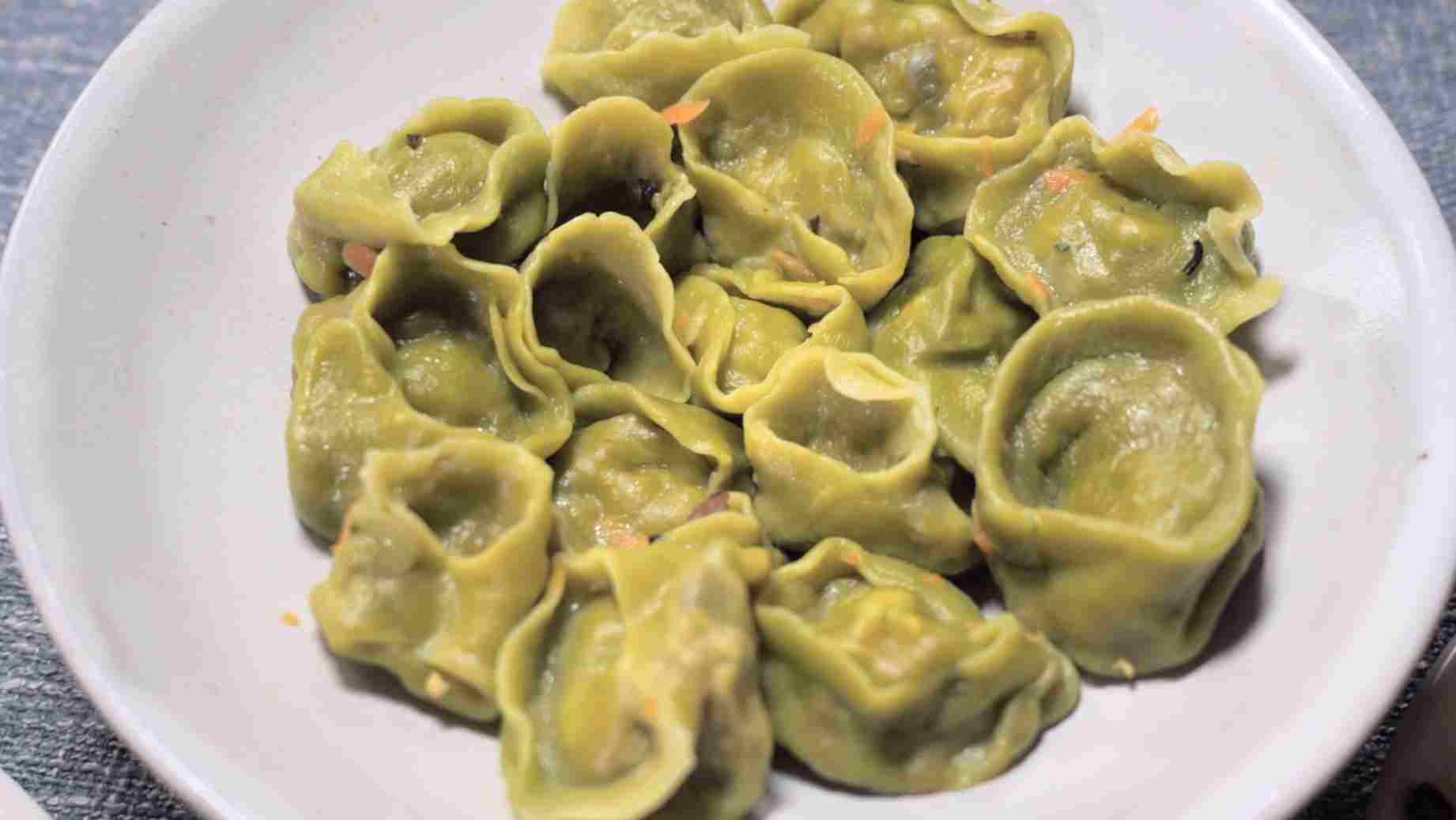
Binging on dumplings needs no excuse, but imagine if more dumplings mean a heftier bank account. /CGTN Photo
Binging on dumplings needs no excuse, but imagine if more dumplings mean a heftier bank account. /CGTN Photo
Dumplings are a quintessential Chinese food, packing a wallop of flavor inside a bite-sized wrap. Having pleased palates for over 1,800 years, dumplings have moved up the ranks to become the star of the Chinese New Year's Eve dinner for people in northern China, with their popularity on the same night spreading to the south. They are said to bring good fortune because of their shape that resembles an ingot (元宝), a currency used in imperial China. Making dumplings also represents togetherness since it's a bonding activity requiring family members to roll up their sleeves and collaborate in the lengthy process.
Rice cake
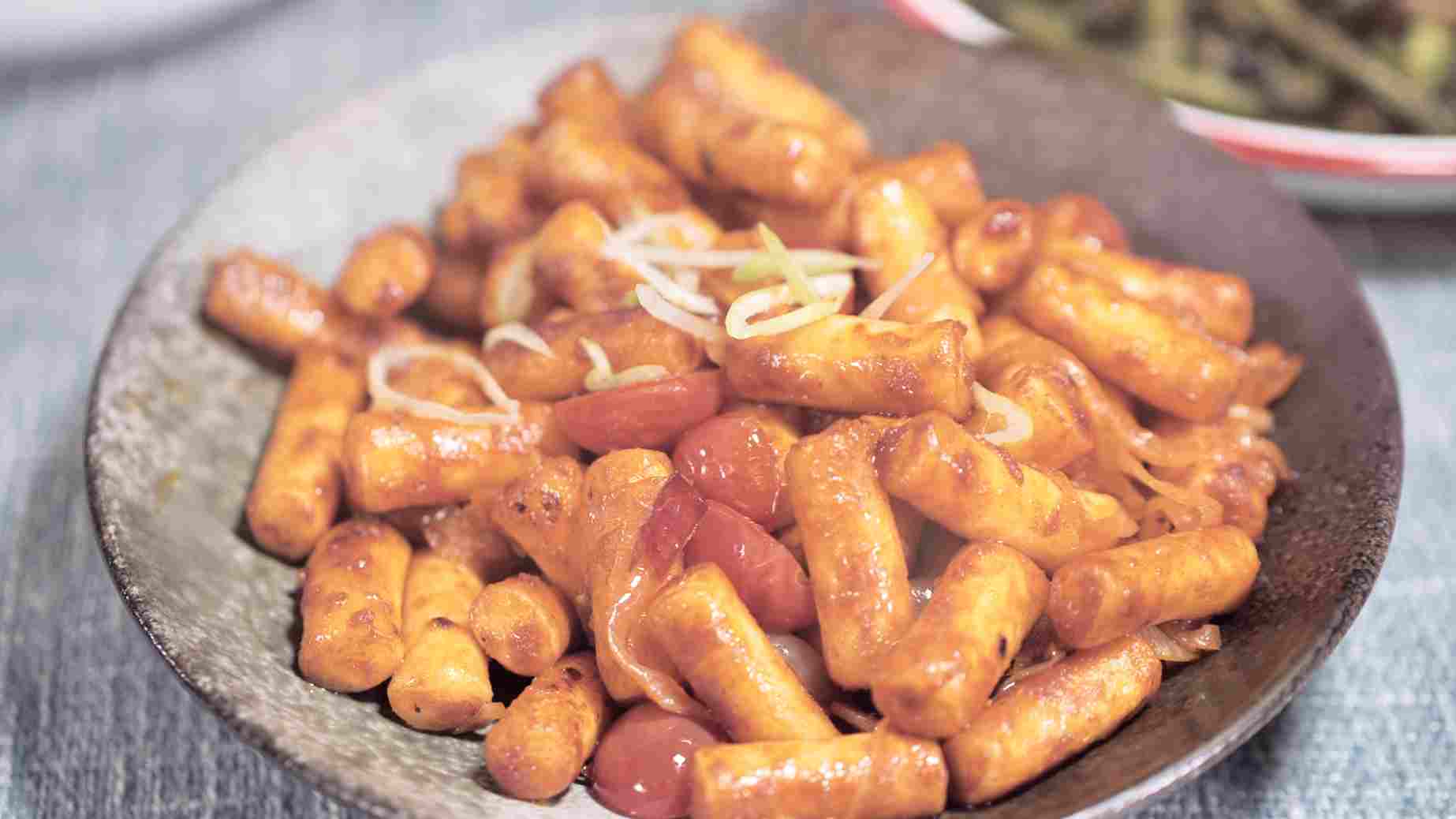
Looking to reach new heights in life? Niangao is the answer. /CGTN Photo
Looking to reach new heights in life? Niangao is the answer. /CGTN Photo
Professionals seeking a promotion at work, parents wanting their kids to grow taller or students hoping to get better grades at school might have their prayers answered if they tuck into glutinous rice cake. Sticky, chewy and yummy, the dish is characteristic of southern Chinese cuisine and represents progress in life. Rice cakes can be served as dessert or a savory side dish depending on what goes into them. Called 年糕 in Mandarin, they sound similar to 年高, which means "Getting higher every year."
Green beans
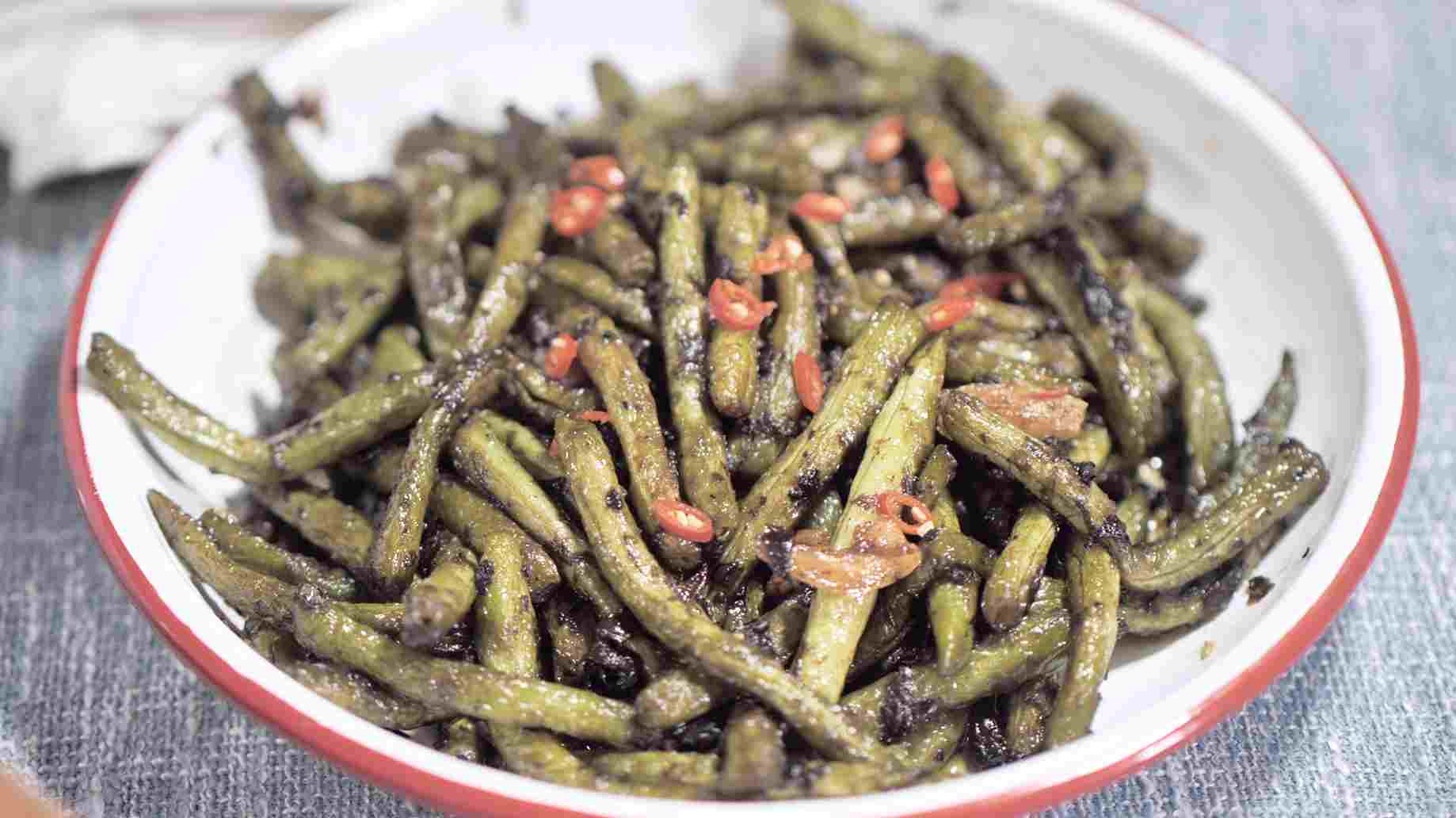
Green beans will make sure that luck is on your side for the next four seasons. /CGTN Photo
Green beans will make sure that luck is on your side for the next four seasons. /CGTN Photo
Stir-fried green beans might not be the highlight of the night, but one would be remiss to underestimate what they have to offer. The side dish is quite versatile, with the aromatic base of garlic, ginger and red chili making it a tasty vegetarian option, while a few bits of cured meat chucked into the pot add a smoky flavor. Green beans are called 四季豆 in Mandarin, which translates to "four seasons beans" and so they're thought to usher in good fortune for the year ahead. Some also believe they are a symbol of longevity because of their long pods.
Pig trotters
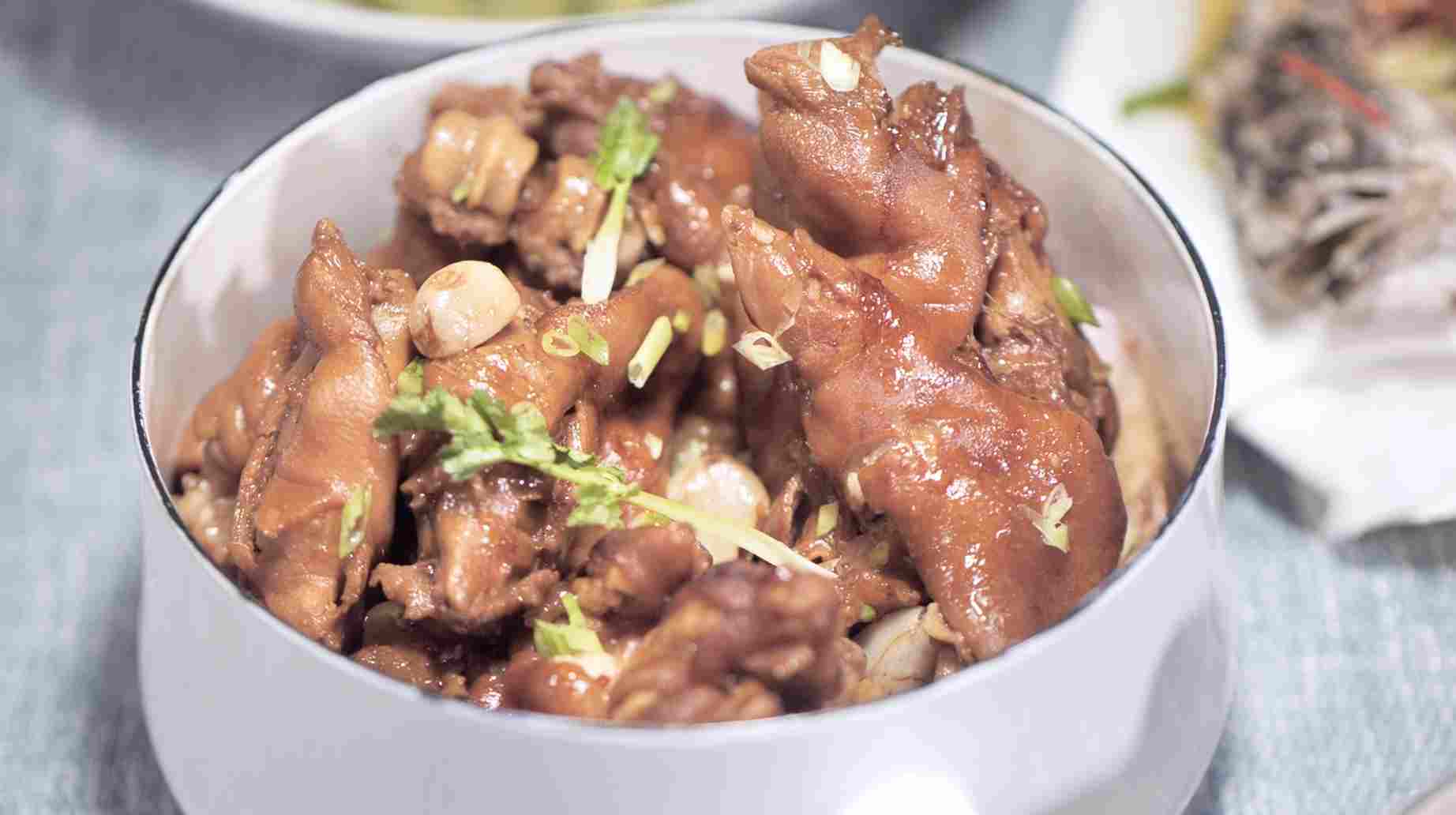
Pig trotters could be what's standing between you and the millionaires' club. /CGTN Photo
Pig trotters could be what's standing between you and the millionaires' club. /CGTN Photo
Looking to start the Year of the Pig on the right foot? Here's food for thought: Pig trotters. It might not aesthetically be the most appetizing item on the table, but what the dish lacks in good looks, it more than makes up for in nutrition – and good luck properties. Pigs are auspicious animals in Chinese culture, symbolizing strength and wealth. Some pig species are also known to be good truffle hunters, sniffing out the valuable fungus underground. Just imagine that a life of luxury and riches could only be a few pig trotters away!
Foods are not just foods on Chinese New Year – so the next time you sit down at the dining table during this Spring Festival, remember that what you're about to eat can mean much more than just a simple meal.

SITEMAP
Copyright © 2018 CGTN. Beijing ICP prepared NO.16065310-3
Copyright © 2018 CGTN. Beijing ICP prepared NO.16065310-3